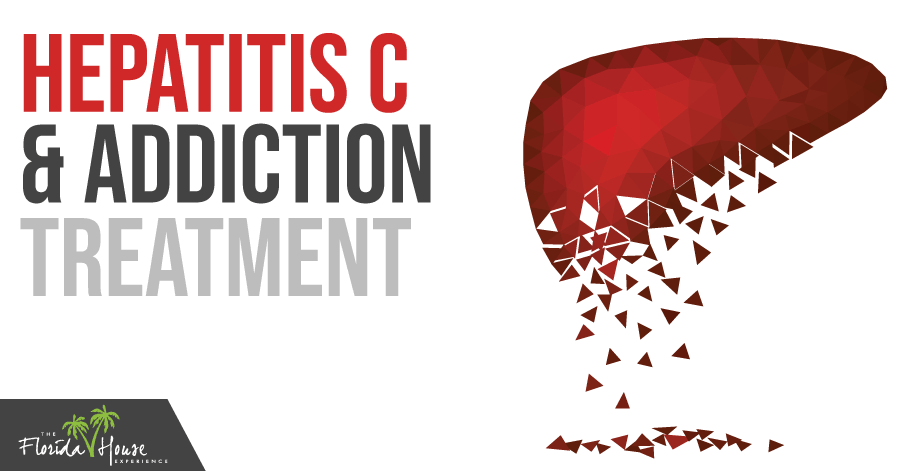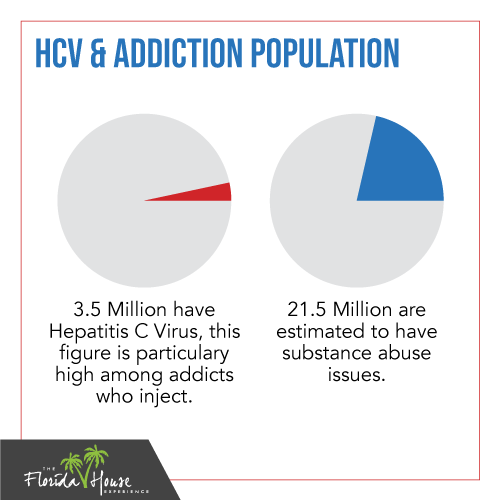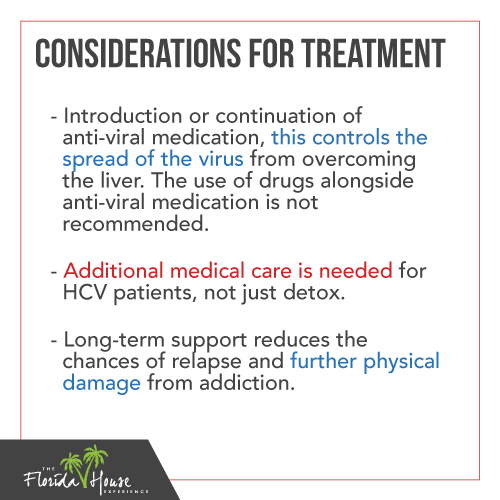
Updated May 13, 2019
The heroin and opiate epidemic has caused hepatitis C cases to more than triple in this country in recent years, according to a May 2019 report by the Centers for Disease Control; but many drug users don’t know how vulnerable they are to this serious, blood-borne virus and how easy it can be to contract. With May being Hepatitis Awareness Month, and May 19 (Sunday) Hepatitis Testing Day, we thought it was a perfect time to again shine a light on the problem and raise public awareness.
There’s also no better time to encourage anyone you know who is a drug user to get tested for hepatitis C at a local rehab facility, and—regardless of the test results—to think seriously about getting clean. With a comprehensive treatment plan that includes a medically supervised detox followed by inpatient group and individual therapies, many people with addiction have gone on to successfully stay sober and prevent or treat a diagnosis of hep C before it’s too late.
At FHE Health, we have a full team of medical doctors available to meet the needs of anyone who may be coming into our care after a positive hep C test. Our care always focuses on support for the whole individual, inclusive of HCV care, liver disease, and substance use disorders. In this post, you’ll learn why hepatitis C is often a secondary condition to the disease of addiction, and therefore often a necessary component of an addiction treatment plan.
What Is Hepatitis C?
 Hepatitis is a type of inflammation that occurs in the liver. It develops for various reasons but is commonly associated with the build-up of toxins in the liver from alcohol or drug use.
Hepatitis is a type of inflammation that occurs in the liver. It develops for various reasons but is commonly associated with the build-up of toxins in the liver from alcohol or drug use.
It can also take a pathogenic form, which is classified by a letter. Viral hepatitis is labeled as A, B, C, D, or E. Hepatitis C, or HCV, is the most common type of infection that transmits between people at high risk due to alcohol or drug use. Risky behaviors such as using drugs and sharing needles often transmit this condition from one person to the next.
According to the National Institutes on Drug Abuse, about 3.5 million people have HCV, and this figure is particularly high among those who inject drugs. Because it is such a prominent and potentially dangerous ailment in those who have a substance use disorder, it is always something we screen for and treat if it occurs.
What Happens If Hepatitis C Virus Isn’t Treated?
When HCV care is not available, the condition can worsen into cirrhosis of the liver. This is a progressive, chronic hepatitis form that can ultimately render the liver unable to remove toxins from the bloodstream. It can also develop into a form of cancer called hepatocellular carcinoma. The CDC reports that one million people will die over the next 40 to 50 years due to chronic, untreated HCV infections.
How Can a Person Get Hepatitis C?
Hepatitis C transmits from person to person, most often through shared needles, so it’s particularly prevalent among intravenous substance users. Even absent needle sharing, it can also be transferred through all equipment used to prepare or “cook” intravenous drug solutions, putting all those in contact with these instruments at high risk.
What Are Signs of Hepatitis C in a Drug User?
Individuals who have a substance use disorder may have Hepatitis C and not realize it. The symptoms can be difficult to spot initially due to the changes that drugs can create in the body. Signs of this condition include:
- Pain or tenderness located in the area of the liver or abdomen
- Joint paint
- Muscle pain
- Weakness
- Nausea
- Indications of an infection, such as a high fever or clammy skin
- Poor appetite
If these symptoms are present, you should seek medical care. If you believe your loved one may have this condition and is using drugs or alcohol, it may be ideal to seek out treatment for both at the same time. In a medical emergency, such as when someone loses consciousness or has a very high fever, emergency medical care is the necessary first step.
However, some carriers may show no outward symptoms of the condition or manifest them only infrequently. Hepatitis can remain dormant in the body for many years, causing virtually no impact. It may not noticeably affect the liver for some time. Flare-ups of chronic hepatitis might simply look like frequently recurring flu.
Ongoing Drug Use and Hepatitis C
Those with hepatitis C who continue to use drugs or alcohol with their condition are at an increased risk of chronic health risks. The continued use of illicit drugs, alcohol, prescription drugs, or other substances with this condition puts a significant amount of strain on the liver. As a result of this use, the liver must work harder to keep removing the toxins from the body’s bloodstream. This extra work further strains the liver beyond what the virus itself causes. Over time, the organ cannot regenerate new cells to compensate for the damage caused by the toxins. It slows and stops working efficiently. The virus works to take over the existing cells, straining them further.
While those who have hepatitis C and don’t use substances can recover from it at a significantly high rate, those who use substances due to addiction cannot easily recover. In many situations, these individuals suffer rapid onset liver failure that’s difficult to overcome.
How Being Positive for Hepatitis C Virus Can Be Medically Managed for Those Seeking Addiction Treatment
Treatment for hepatitis C in individuals who have a substance use disorder must focus on several things. First, the antiviral treatment usually includes a combination of pegylated interferon along with ribavirin. These medications work to keep the virus under control. They work to keep the virus from overtaking the liver, though they may not be able to cure the condition completely.
 While those with hepatitis C will receive antiviral medications like this, some individuals may not qualify to receive them. Doctors may not recommend or use these medications if a person is actively using drugs or alcohol due to the complications and the limited impact it can offer.
While those with hepatitis C will receive antiviral medications like this, some individuals may not qualify to receive them. Doctors may not recommend or use these medications if a person is actively using drugs or alcohol due to the complications and the limited impact it can offer.
For these reasons, individuals who have chronic hepatitis or may have it should work through addiction rehabilitation. By doing so, it is possible to minimize the risk of drugs or alcohol in the system to allow medications to work to treat the virus. At the same time, individuals obtain the support they need to detox and then obtain short-term and long-term rehabilitation for their addiction. Without this, the individual may continue to use drugs or alcohol, worsening their hepatitis virus and the damage it can create to the liver.
A comprehensive treatment program becomes critical for anyone who needs HCV care. At FHE Health, our full team of licensed medical doctors is available to help patients to obtain the care they need for both hepatitis as well as drug or alcohol addiction. Even in individuals who may not believe they have an addiction, it becomes critical to enter treatment to remove the presence of these substances for the treatment of hepatitis.
If you or your loved one may be experiencing this type of condition or is in need of treatment for substance abuse, work with FHE Health to obtain the necessary treatment. It may improve long-term outcomes in both fighting chronic hepatitis C and addiction.






